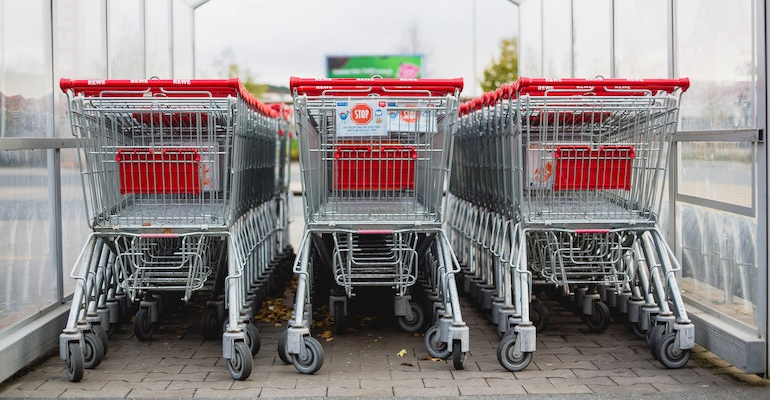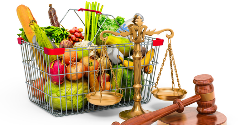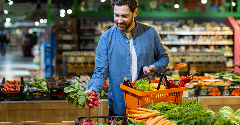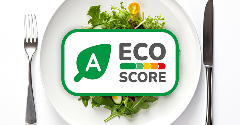News
UK to continue exporting agricultural products to EU
8 Jan 2021Despite the UK officially leaving the European Union, the island nation will still be able to continue exporting meat fish and dairy to the continent. Late last month, the Department for Environment, Food and Rural Affairs (Defra) granted the UK Third Country status which permits the export of animal products. Equines are also eligible for movement between the UK and the EU with this designation.
After meeting the required animal health and biosecurity standards necessary to receive Third Country status, the UK can continue moving food to Northern Ireland as well as the rest of continental Europe. A week before the country’s transition period ending on Dec. 31, the government agreed on what Prime Minister Boris Johnson called a “Canada style” agreement that allows the UK to avoid tariffs and quotas. Fishing rights for the two separate economic zones remain under negotiation.

However, Politico reported that potatoes were excluded from the list of products that are permissible for export since Brussels determined that the standards maintained in the UK for the product were not “dynamically aligned” with the standards in the EU. This exclusion affects farmers that reside primarily in Scotland and the north of England but accounts for £90 million worth of seed potatoes annually, one-fifth of which is exported to the European Union.
While this step in the Brexit negotiations more closely paralleled the relationship between the two countries, farmers in England accused the new status as lacking in “crucial information.” Food Navigator reported that industry representatives criticized the decision as lacking in details, including whether additional guarantees on Export Health Certificates for animals of UK origin will be required. The Northern Ireland Food and Drink Association also said that additional clarity was needed around bureaucracy and dispute resolution.
Although there will be few financial ramifications according to the agreement struck between the two economic zones, members of the UK will need to provide the same level of paperwork and labeling when exporting to the Republic of Ireland as they would to the EU. However, as the EU is the largest trading partner for the UK, a tariff-free agreement is a crucial decision for the industry that will be greatly affected by the finalization of the Brexit transition.
Trade of agri-food products between the EU and the UK is immense. According to the European Commission, the value of exports between the two entities came to €41 billion.
The transition to a UK outside of Europe has been a long, arduous journey, and Mella Frewen, the director general of FoodDrinkEurope told Food Manufacturer that at this stage, “failure to more quickly will lead to more, broader chaos and supply chain disruption that will not only put thousands of jobs at risk but also impact the safe supply of affordable agri-food products to customers.”
Related news

UK Government overhauls childhood obesity strategy
21 Nov 2025
The UK Government has announced a new package of measures designed to reverse the nation’s childhood obesity epidemic following the release of statistics revealing the scale of the crisis.
Read more
How younger consumers are redefining ingredient choices and rejecting brand loyalty
18 Nov 2025
Gen Z and millennial consumers’ preferences for transparency, functionality, and purpose are “redefining the very nature of consumption itself”, says SPINS.
Read more
New UPF standard hoped to offer consumers ‘coherence and clarity’
10 Nov 2025
Ingredients companies are being urged to enter “a new era of partnership and innovation” following the launch of the industry’s first non-UPF verification scheme.
Read more
Ingredient quantities mislabelled on popular protein bars, independent tests show
5 Nov 2025
Some popular protein bars contain more fat, carbs, and/or sugars than claimed on their labels, independent nutrition testing reveals.
Read more
Does promoting protein content push up plant-based sales?
27 Oct 2025
Promoting the protein content of meat-free products is a more effective sales strategy than adding carbon labels, a study of UK bakery chain Greggs suggests.
Read more
Supplement shoppers seek storytelling and science-backed suppliers
17 Oct 2025
Supplement consumers want specific health benefits that focus on prevention and personalisation, according to data from HealthFocus International.
Read more
Food fraud risks rise as brands fight economic and environmental headwinds
10 Oct 2025
Climate change, geopolitics, regulations, and demand for sustainable products are pushing up food fraud and adulteration risks, warns a world-leading food fraud expert.
Read more
The growing appeal of nutrient-dense food claims
2 Oct 2025
Nutrient-dense claims are rising as consumers reject the “empty calories” of UPFs in favour of products that provide meaningful nutrition with every calorie, Mintel data shows.
Read more
What does MAHA mean for the US nutraceutical industry?
30 Sep 2025
Industry associations have expressed mixed reactions to new policy directions on health and nutrition under the Make America Health Again (MAHA) banner.
Read more
Eco-Score labels improve consumer identification of sustainable foods
22 Sep 2025
The presence of a front-of-pack Eco-Score label improves consumers' accuracy in identifying sustainable food products from 52% to 72%, a study suggests.
Read more